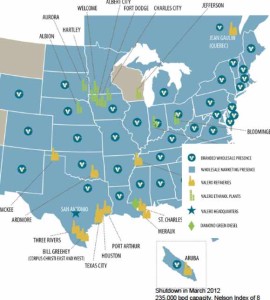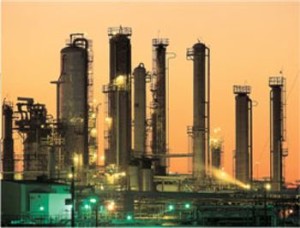Valero plans to build crude topping units at its Corpus Christi, TX refinery and its refinery in Houston.
The two expansions come with a price tag of $730 million, but will likely be needed if the growth of light-sweet crude oil from areas like the Bakken, Eagle Ford, and Permian Basin continue.
Read more: Valero Houston Refinery Expanding for Eagle Ford Crude
The company's plans include adding a 70,000 b/d unit at the Corpus Christi refinery at an estimated cost of $340 million and a 90,000 b/d topping unit in Houston at a cost of $390 million.
Valero announced plans to add the 90,000 b/d unit at its Houston facility at an estimated cost between $220 - $280 million early in 2013. According to Valero Spokesman, Bill Day, those costs are now projected at $390 million for the 90,000 b/d unit.
Eagle Ford Crude Oil Production Driving Refinery Expansions
Eagle Ford Crude has an API of 50 degrees, and Valero's refineries are accustomed to processing heavier crude from South America. As Valero's Eagle Ford production rates remain strong, the need for its refineries to process the light sweet domestic crude is the push behind both of these initiatives.
Additional production growth will likely lead to even more favorable pricing for domestic crude oil.
“The new units at these refineries will allow the plants to purchase less intermediate feedstocks from outside suppliers.”
Both refinery units are in the planning phase, so no construction has taken place, but the company intends for both units to be completed by the end of 2015.
Other Valero Downstream Projects in Texas
[ic-l]At the Valero's Three Rivers refinery, which sits atop the Eagle Ford shale, the company built a new pre-flash tower and added logistics in 2011-12 to process more light Eagle Ford crude.
Valero also plan expansions at the McKee Refinery in the Texas Panhandle. The project calls for spending $60 million to increase the crude unit from 170,000 bpd to 185,000 bpd, in order to process more Permian Basin crude.



